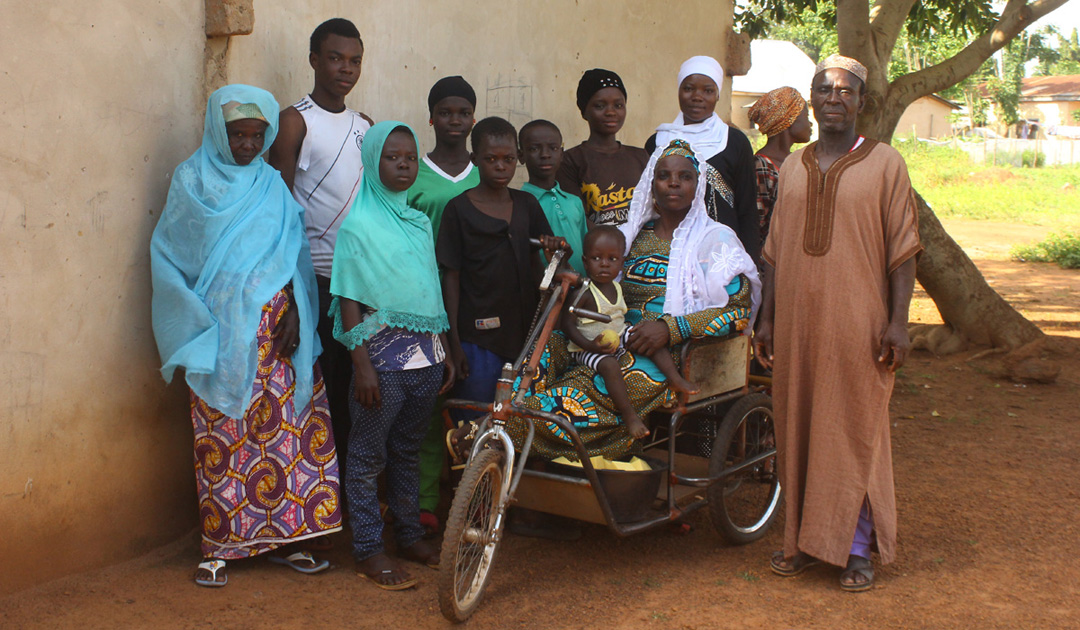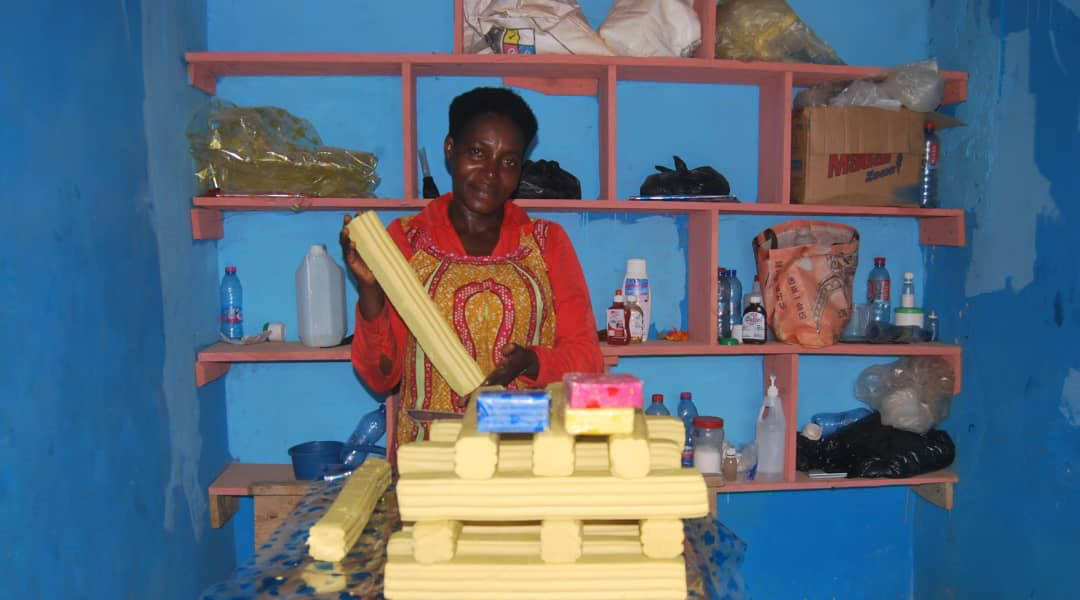In rural Ghana, soapmaking brings success for women living with disabilities
IFAD Asset Request Portlet
Asset Publisher
In rural Ghana, soapmaking brings success for women living with disabilities
Estimated reading time: 3 minutesThese days, when Awulatu Abdulai goes into town, she’s got a basket full of soaps to sell.
But for Awulatu, a 40-year-old mother of 5 who uses a wheelchair, going into town used to mean something a lot different. She and her family live on the outskirts of Tamale, Ghana’s third-largest city and an up-and-coming hotspot for business and finance. Nevertheless, she was unable to find work. With no other way to supplement her husband’s small income from farming, she frequently had to beg for money on the streets. On days she didn’t collect enough, the entire family went to bed with empty stomachs.
Like Awulatu, many persons with disabilities face barriers to accessing education, training and employment. For women with disabilities, those barriers are even higher. This is especially true in rural areas, where the agriculture sector is the main employer and most jobs require physical labour of some kind. Indeed, persons with disabilities make up a disproportionate share of the world’s poorest people, and many have to depend on family or friends to get by.
 |
| Awulatu and her family at their home in Gurugu. A basket of soaps for sale can be seen in the footwell of her wheelchair. |
Everything changed for Awulatu one day in 2016, when a woman approached her and offered help. The woman turned out to be a business development officer with the IFAD-funded Rural Enterprises Programme (REP), an initiative that supports micro- and small-scale entrepreneurs in rural Ghana, with a special focus on marginalized groups such as persons with disabilities. With her help, Awulatu entered a training course on soapmaking.
After she completed the training, Awulatu received 2,000 cedi (about US$300) from REP as credit. Right away, she invested it into starting a business. She soon began producing a variety of bar and liquid soaps, along with pomade as an additional income stream.
As her income grew, Awulatu found space to experiment. She soon came up with a new product: a round soap she calls “hot cake,” made by combining the byproducts of her soap production with caramel-coloured melted sugar. Lately, she’s begun to explore ways of producing in larger quantities, as well as expanding her sales to nearby villages.
Today, soapmaking has practically taken over the compound of her home in Gurugu, on the rural outskirts of Tamale. There’s a hot meal on the dinner table every night, and her children’s education is paid for.
 |
| Beatrice displays some of her finished bar and tablet soaps. |
Thirty-eight-year-old Beatrice Arthur has also built a livelihood from soapmaking. And, like Awulatu, she has grown her business from almost nothing.
After her parents died when she was in primary school, Beatrice found it impossible to juggle managing her disabilities with continuing her education, and she ultimately dropped out. She found work as an attendant at the water standpipe in her village of Benin, in central Ghana, and supplemented her wages by bagging garri flour and sugar for sale. But, all told, it brought in barely enough income to sustain her.
In 2009, Beatrice took part in the soapmaking course offered by REP. As soon as she finished the course, she went around to neighbouring villages and offered to train others in the techniques she’d just learned. With the funds she raised, she began her own soapmaking business.
She supplemented this with the 2,000 cedi in credit from REP, and she took additional courses in business management and in packaging and marketing her products. She also participated in REP exhibitions and trade shows.
Today, she makes 50 boxes of bar soap, 30 boxes of tablet soap, 250 sachets of powdered soap, and 130 containers of liquid soap a month. She distributes widely to retailers, and she brings home a monthly profit of 1,500 cedi (about US$230). She has a staff of 15 casual and part-time workers.
Although she’s now divorced, she no longer worries about paying her children’s school fees. She even saved enough to build a new house.
Her efforts to train others have paid off, too. Over the years, she’s taught 60 people how to make soap, and 40 of them now have soap production businesses of their own.
For Beatrice and Awulatu, the training and support they received were just what they needed to start their own small businesses, earn decent incomes, prevent food insecurity and educate their children – and even create employment for others. They’re proof positive that bringing down the barriers to participation for persons with disabilities creates a richer, more vibrant and more equitable society for all.
Learn more about IFAD's work in Ghana.
This story was one of two articles published to commemorate the 2022 Global Disability Summit. Read our other article here.
Publication date: 15 February 2022